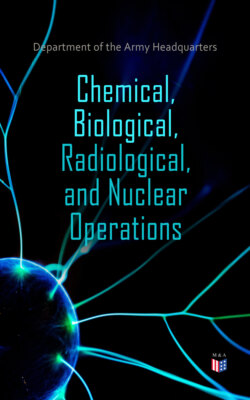Читать книгу Chemical, Biological, Radiological, and Nuclear Operations - Department of the Army Headquarters - Страница 39
На сайте Литреса книга снята с продажи.
1-30. Cooperation with law-enforcement agencies.
ОглавлениеTable of Contents
a. United States forces, other than those attached to the military establishment of the foreign country in which they are operating will not, as a rule, participate in matters concerning police and other civil functions. The military forces usually constitute a reserve which is to be made available only in extreme emergency to assist the native constabulary in the performance of its purely police mission.
6. The mission of our forces usually involves the training of native officers and men in the art of war, assisting in offensive operations against organized banditry and in such defensive measures against threatened raids of large organized bandit groups as are essential to the protection 6f lives and property. When the civil police functions are vested in the native military forces of the country, these forces are charged with the performance of two definite tasks—a military task involving the matters outlined above and a police task involving in general the enforcement of the civil and criminal laws. The native military forces control the traffic of arms and ammunition; they see that the police, traffic, and sanitary regulations are observed; they assume the control and administration of government prisons; and they perform numerous other duties that, by their nature, may obviously, directly or indirectly, play an important part in the accomplishment of the military mission.
c. It follows, therefore, that by cooperating to the fullest extent of his authority with the native forces in the performance of civil police functions, the military commander will, without actually participating in this phase of the picture, be rendering valuable assistance towards the accomplishment of the ultimate mission assigned to the combined military forces. Due to the fact that in most cases the individuals occupying the important positions in those native organizations performing police duties, are United States officers and enlisted men, questions arising with regard to cooperation and assistance are easy of solution. Adherence, on the part of our personnel, to the dictates of the local laws and regulations, and a thorough knowledge of the scope of authority vested in the native police fore© is essential to the end that we do not hamper this force in the performance of its duty, and to the end that we maintain the respect and confidence of the community as a whole.
d. With regard to the contact that is had with those connected with the judicial branch of the government, very little need be said. The magistrates and judges of the various courts are usually political appointees, or are elected to the office by the national congress. Consequently, they are affiliated politically with the party in power, national and/or local. In most situations, the civil courts will continue to function. Although this procedure is not always conducive to the best interests of the military forces, it is a situation that normally exists and must be accepted. The manner in which the judiciary performs its functions may have a profound effect on the conduct of a small war campaign. In the first place, the apprehension and delivery of criminals, including guerrillas, by the armed forces to the courts will serve no useful purpose if these courts are not in sympathy with the military authorities; and in the second place, a lack of cooperation on the part of the courts, insofar as the punishment of outlaws is concerned, may have a tendency to place the local inhabitants in fear of assisting the military forces. In view of this situation, every endeavor should be made to generate a friendly attitude on the part of these law-enforcement officials in order that their cooperation may be had.
